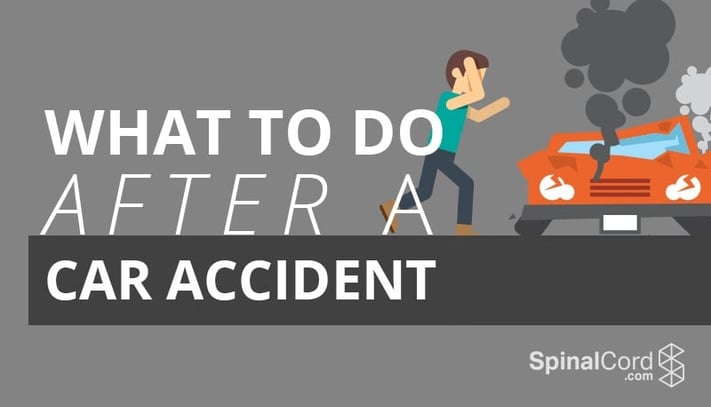What to Do After a Car Accident

More than 30,000 people die in car accidents each year, making them the ninth-leading cause of death in the United States. Car and motorcycle accidents are also the leading cause of spinal cord injuries, and give rise to thousands of personal injury lawsuits each year. If you have been in a car accident, you might not feel lucky, but you survived, and that counts for something.
The steps you take after a car accident can affect whether you are able to pursue legal action for your injuries, how quickly your car can be repaired, and whether you are charged for your role in the accident. A car accident is a scary thing that we all hope never happens to us. If it happens to you, begin putting the pieces back together with these steps.
Protect Your Safety
In most cases, the other driver will not cause additional violence. But if he or she seems angry or aggressive, your first priority should be seeking safety. Lock the doors to your car if you are able. Turn on your phone's video camera, since being filmed can often deter people who are aggressive or violent.
Call the Police
State and local laws regarding when you must call the police in the event of an accident vary, but its never a bad idea to call the police to see if they can help. Doing so ensures you are safe, particularly if the other person gets aggressive. It also creates documentation of the incident that can help you if you end up pursuing a lawsuit. And if you are legally required to call the police and do not, you could face a range of charges.
Get the Other Driver's Information
You will need the other driver's information to pursue a claim with his or her insurance company. Jot down the other driver's insurance information, phone number, address, and vehicle description. Don't forget about the license plate! If the other driver attempts to take off, a simple photo of his or her car's license plate will be all you need to track him or her down.
Document Damage to Your Car
Documenting the physical scene of the accident, including any damage to your car, can help you prove your claim in court, or defend yourself against a false claim. It may also be a prerequisite to getting your claim paid by an insurance company. Take photos of your car from all angles, and get photos of the accident scene and the other driver's car as well. For an even stronger effect, try taking video, which is much effective at showing the full complexity of the accident scene. Seek help from others nearby with this part if you are unable yourself.
Seek Medical Care
Some injuries, notably spinal cord injuries, are apparent from the very start. Others, including some head injuries and some forms of internal bleeding, may not produce symptoms right away—especially if you're experiencing an adrenaline rush or are in shock. If your car accident was anything more than a fender bender, you hit any part of your body, or were hit by a flying object, you need to be checked by a doctor.
A doctor is the only person who can prove that your injuries actually happened, so if you suffer a severe injury that requires legal action, medical care is vital. Moreover, prompt intervention when you have been injured can prevent minor injuries, such as whiplash, from turning into more serious injuries, such as intractable chronic pain.
Continue to follow up with your medical provider. If you stop seeking treatment or don't follow your doctor's recommendations, the insurance company could use this in an attempt to prove that you're not really as injured as you claim. And that could potentially destroy your lawsuit or chance at a settlement.
Document Your Injuries
Though a doctor's report can help you document your injuries, if your injuries are severe enough, you may need more. The more documentation, the better, so consider doing the following:
- Keep a log of your pain, its severity, and the frequency with which it occurs.
- Retain copies of all X-rays and medical reports.
- Contact your doctor whenever you have a new symptom.
- Take photos of your injuries, as well as the incident that caused them. For instance, if you were hit in the head by a flying object, take a photo of the object to demonstrate its size and location.
Talk to an Attorney
If you were injured, do not talk to the insurance company without the assistance of a lawyer. Insurers are in the business of devaluing claims, so they will do just about anything to pay as little as possible.
Only a lawyer can properly evaluate your claim.
Don't try to go it alone, since important deadlines, legal procedures, and esoteric legal standards can all make it challenging to win your case. The sooner you can talk to a lawyer, the better, since the steps you take in the early days after a car accident may affect whether you eventually win your case.
Stay Updated on Advancements On Traumatic Brain &
Spinal Cord Injuries
About the Author





